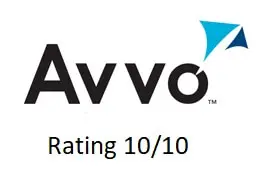A resident of the United States who holds financial assets or takes in income from other parts of the world must disclose this information when they file their taxes. There could be consequences for failing to report offshore accounts and the related income in Washington DC. To mitigate these consequences, retain the services of an experienced offshore disclosure attorney.
What is an Offshore Penalty?
A Title 26 miscellaneous offshore penalty is 5% of the highest aggregate balance for a taxpayer’s foreign financial asset. This penalty only applies to those who put forth a disclosure for the streamlined domestic offshore procedure. The payment of this penalty must be remitted along with the disclosure.
Potential Criminal Charges
Generally speaking, the non-willful taxpayers (those who made a good-faith error) may not have known about all the complex U.S. reporting rules. Non-willful individuals do not need to worry about criminal exposure here, as that risk only applies to those who have been deemed willful. This will require several conversations between taxpayer and lawyer, along with a review of foreign tax returns, current domestic tax returns, foreign account statements, et cetera, to try to determine whether the taxpayer was non-willful or willful.
Once someone engages in a willful failure to file these international information forms and failure to pay their U.S. tax-based foreign account, that is when the risk of criminal charges comes in. The willful failure to file an FBAR is punishable by up to 10 years in prison with fines of up to $500,000. However, when people have FBAR charges criminally brought against them, they have often been involved in other criminal tax matters, including:
- Tax evasion, which is punishable by a fine of up to $200,000 and/or five years in prison
- Tax obstruction, with fines up to $5,000 and three years in prison
- Tax perjury, with fines up to $100,000 and up to five years in prison
Although criminal charges are extremely rare, the consequences of failing to disclose offshore accounts in Washington DC could prove to be severe for someone who did so willfully.
Civil Penalties
In terms of the civil enforcement, the IRS has a lot of discretion when it comes to FBAR penalties. The default rule is 10% per violation but there is room to bring the penalty down to just a warning letter. It depends on several factors, including the size of the foreign accounts. The IRS could assess a penalty of $500 per account, a $10,000 one-time penalty, or each individual account could be hit with a $10,000 penalty. In extreme cases, they could assess a $10,000 penalty per account per year, for up to six years.
The objective of making a disclosure is to reduce the risk of these large penalties. Other penalties include $10,000 per year for the failure to file documents like Form 8938 or Form 5471, as well as Form 3520. Alternatively, the IRS could assess the Form 3520 penalty as the greater of 35% of the funds put into the foreign trust or 35% of the funds taken out of the foreign trust. There may be additional penalties if the noncompliance continues for 90 days after the IRS gives the notice of failure to file the Form 3520.
Civil penalties are the more likely consequence of a local taxpayer failing to report their offshore accounts with their annual tax returns and a lawyer could work to ensure they do not escalate.
Is There Any Tax Amnesty Given for Offshore Disclosures?
The IRS is the agency that administers the Internal Revenue Code, and processes and collects tax returns, while the Department of Justice enforces the laws in terms of criminal prosecution. Therefore, the IRS cannot give amnesty blankets for offshore disclosures. But under voluntary disclosure, the taxpayer is provided protection from criminal prosecution, which is not technically amnesty.
Those who file with the streamlined domestic, streamlined foreign, or delinquent FBAR programs do not have the risk because their actions were non-willful. This means the protection comes down to an analysis of whether the taxpayer was willful or non-willful in their conduct. The IRS does not provide a lot of formal guidance on this distinction, so a lawyer has to rely on established case law to help determine willfulness.
At a high level, the willfulness refers to people who intentionally did things against the law or were reckless. Non-willful people do not need to worry about tax amnesty because what they have done does not rise to the level that would lead to a criminal investigation or a potential indictment by the Department of Justice.
Discuss the Consequences of Failing to Disclose Offshore Accounts in Washington DC
If you did not report your foreign accounts to the IRS when it was due, there is still time to correct this mistake by contacting a legal professional. You could minimize the consequences of failing to disclose offshore accounts in Washington DC.








